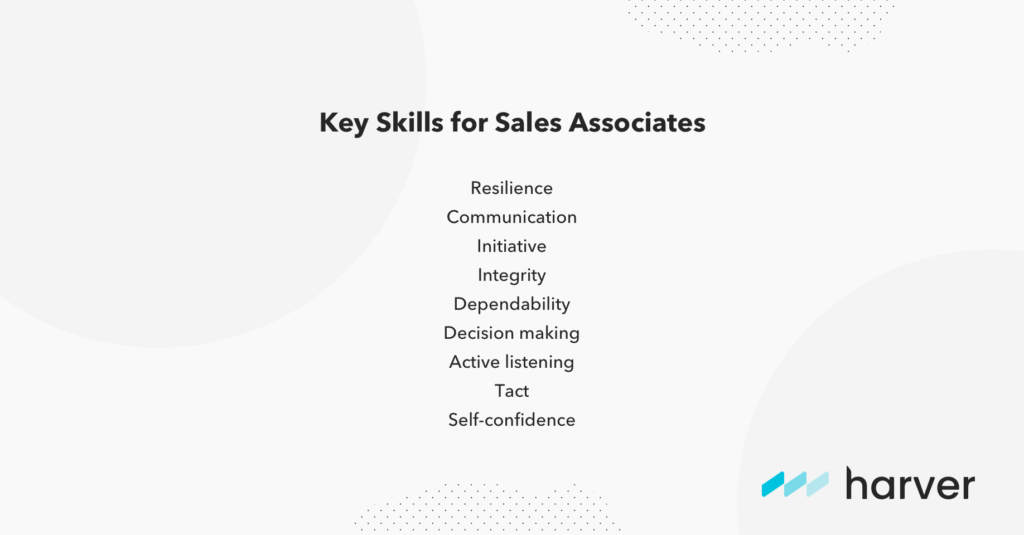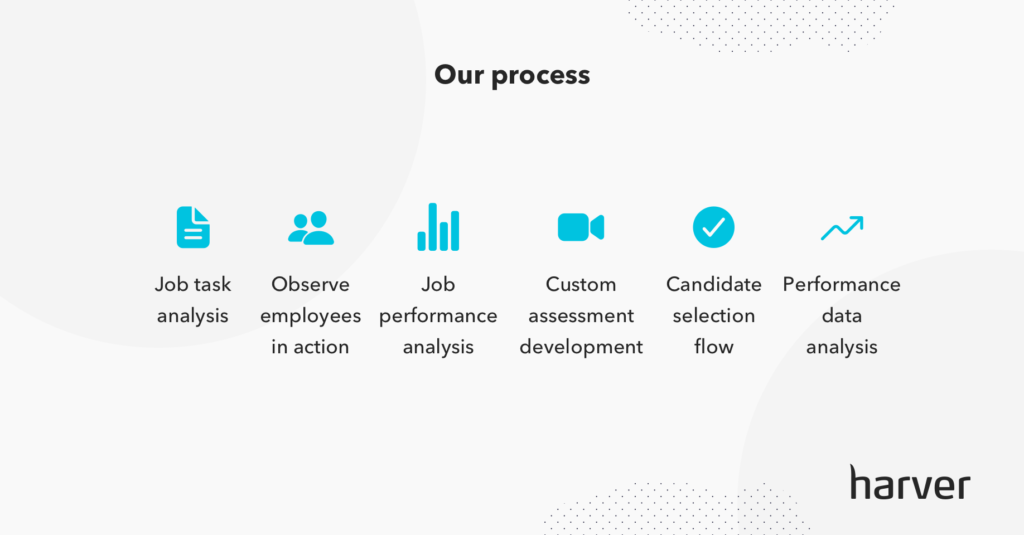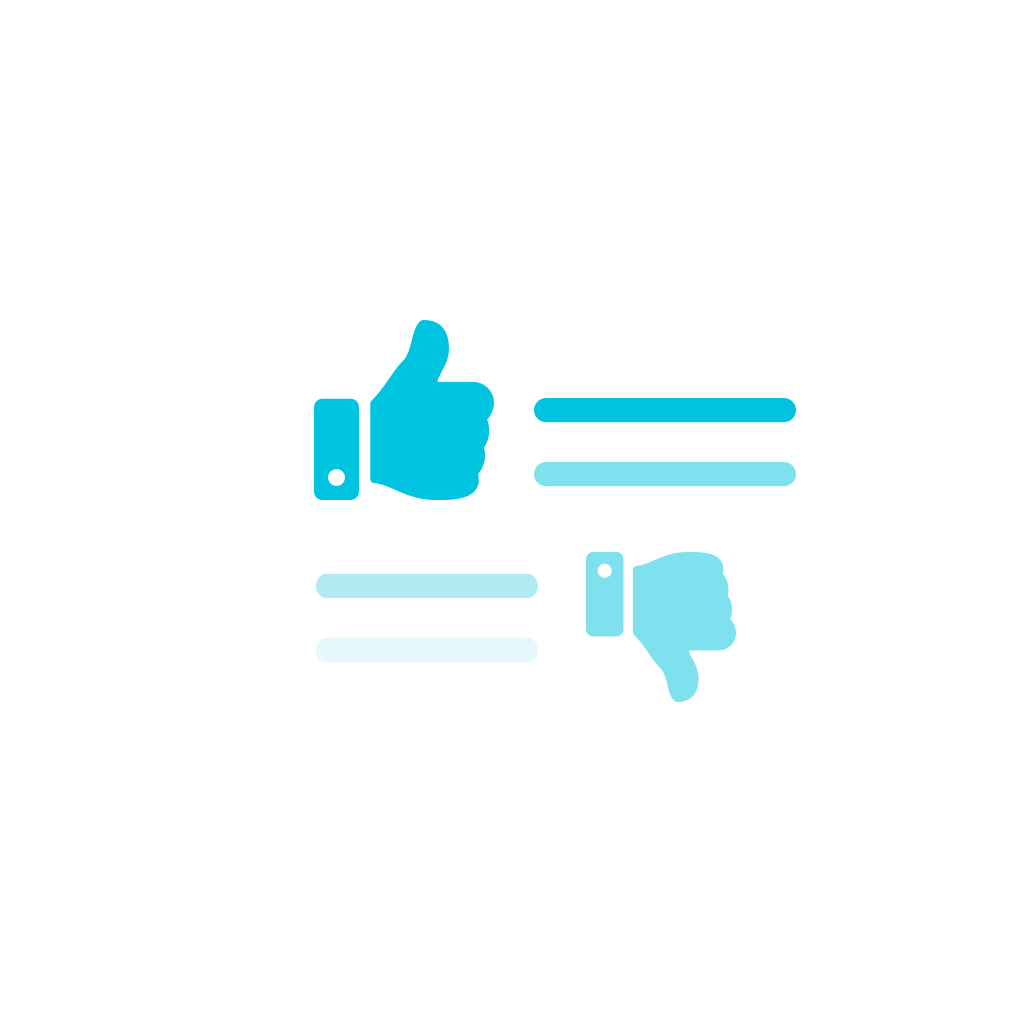Hiring sales representatives is never easy. When you’re volume hiring sales associates, it takes the challenge to a whole new level. And then factor in operating in a tight labor market – which is making hiring problematic across the board – and recruiting sales representatives becomes even tougher.
But that’s not to say it’s impossible. Far from it.
So how do you maintain high quality of sales candidates when the talent pool is looking shallower than usual?
In this article, we’ll delve into 9 critical sales skills and personality traits to look for when hiring sales associates, (and which pre-employment assessments we recommend our clients use to screen candidates).
What’s in?
Like what you see?
Don’t miss out. Subscribe to our quarterly digest to get the latest TA and TM resources delivered right to your inbox.
What does it take to be good at sales?
When your hiring managers are on the lookout for great sales people, what are they looking for? The loud, outgoing, extrovert candidates? The ones who look like stereotypical salespeople?
Then you’re hiring the wrong candidates.
According to Adam Grant of the Wharton School of Business, who studied personality profiles and revenue generation of 340 outbound call center sales employees in the US, extroverts are no better on the sales floor than introverts.
In fact, the group in between the two, the middle of the road sales people, i.e. the ‘ambiverts’ were the best at sales. They outperformed their introverted and extroverted colleagues by more than 24%.
Why aren’t extroverts the top sales people? They’re great at communicating, after all, and are seemingly fearless. But, says Grant, they’re more likely to dominate the conversation and not listen to the customer. And why aren’t introverts the best sales people? Because they’re likely to be reticent to build relationships or take the initiative.
So what makes a good salesperson?
Harver has identified 9 sales associate skills that are the most predictive of a candidate’s potential for future sales job success.
9 essential skills and traits to look for in a sales associate
1. Resilience
Sales is a notoriously tough industry with sales associates needing a thick skin to deal with all the ‘nos’ they encounter on a daily basis. Having the resilience to withstand not just challenging customers, but challenges within the workplace and the team too, is crucial to success.
However it’s not just resilience you’re looking for in sales representatives, they need to have the strength and the inner confidence to go into any challenging situation head on and deal with whatever they find.
Plus, they need to maintain their composure, remain calm and demonstrate self-control while they’re doing it.
2. Communication skills
Good verbal and written communication skills are key attributes of a successful sales representative. Prioritize candidates who possess outstanding communication skills.
Workplace communication skills are essential sales skills because you need candidates to possess the ability to process and understand highly complex instructions while delivering an outstanding customer experience, answering customer questions and ensuring total customer satisfaction.
Sales associates need to not only understand what the customer’s precise needs are, but be able to respond appropriately in a way the customer understands. From warmly greeting customers, to expressing empathy, controlling their voice tone, speaking or writing in specifics, conveying company policies when necessary and in a tactful manner.
And when the customer is angry, or has a complaint, or isn’t a native English speaker, being able to communicate in a way that connects with them, that calms them down, that resolves their issue, is what separates the mediocre sales reps from the top talent.

3. Initiative
A successful sales representative possesses the ability to recognize and seize sales opportunities when they appear, and to convert a sales lead into a sale.
You don’t want sales associates who are unable to think for themselves. You need people who are capable of taking action when an opportunity presents itself, and who are resourceful at seeking out said opportunities.
Initiative in a sales associate looks like being able to think strategically, setting goals and proactively making new sales by inviting customers to consider new products and services.
4. Integrity
Integrity is a critical quality for every sales person to possess because it means the employee has a strong sense of fairness and always strives to do the right things in a dependable way.
A person with integrity will align with your organization’s values around honesty, ethics, responsibility and truthfulness.
When your sales associates possess integrity, buyers are more likely to purchase, because they trust the person selling to them. They know the salesperson won’t sell them something they don’t need, leading to retaining long term customers.
5. Dependability
Dependability is a multi-faceted attribute. Its basic meaning refers to a person who is reliable in terms of adhering to schedules, pursuing new opportunities and producing consistent work.
You want sales associates to be both dependable for the organization, and dependable for the customers they serve. Every single member of your organization depends on someone else to do their job well, so they can do their job well. If one person falls through, it can break the whole chain, and your customers will suffer.
You should look for candidates who can be relied on to adhere to your organization’s values and company policies when working with customers, and to meet sales goals at the same time.
6. Decision-making
Sales associates need to make quick decisions.They have to decide the best sales tactic to use for each customer and the ideal way to resolve customer issues as they arise.
A salesperson must also make decisions about things like what can be offered to the customer while maintaining ethical standards, know how to rapidly build a rapport with the customer, and decide how to assist customers in a way that makes them want to become repeat buyers.
If your sales associates aren’t decisive, it can have a negative impact on your bottom line.
7. Active listening
Possibly the most important skill a person needs to be good in a sales associate job is the ability to listen actively.
To sell successfully requires sales people to impart enough information to buyers to communicate the value of your product or service, while at the same time making sure the prospect feels heard and that their needs are being addressed.
An active listener pays close attention to what is being said: they aren’t just listening to the conversation, they are taking time to comprehend what the customer’s needs are, in order to meet them properly.
Active listening builds rapport and trust, and in a virtual or remote selling environment with limited audience interaction, active listening is more important than ever before.
8. Tact
Ever wondered how the top salespeople build relationships? By being tactful. Tact is when someone is sensitive to what someone else is feeling or experiencing, especially when dealing with a difficult issue.
A tactful person is never rude, even when under pressure or unhappy with what someone else is saying i.e. when dealing with an angry customer, or in a stressful situation.
9. Self-confidence
To sell anything requires self-confidence, a positive attitude you have about yourself and your abilities.
You need sales associates who are confident that they can present information to customers in a way that promotes sales; work with diverse people; meet sales goals; multi-task; maintain composure in a stressful environment; and collaborate with team members.
Self-confidence underlies everything the sales representative is expected to do when carrying out their job.
So how do you identify candidates with these soft skills and traits?
Stop guessing,
Start data-driven hiring.
Learn how you implement a modern candidate selection process, that is: streamlined, experience-driven and backed by data.

The best pre-employment assessments for hiring top sales associates
First things, when you’re volume hiring salespeople, disregard past work experience. A person’s past performance on their sales associate resume is never a good predictor of their potential future success.
As well as the above generic list of skills, take a look at your current top sales people. What skill set and personality traits do they possess that sets them apart from the rest of your sales pack? These are the types of things you should actively seek in potential candidates.
How do you assess applicants for these skills and traits? With customized pre-employment assessments.
At Harver we have a dedicated People Science team who take a scientific approach to developing our client’s pre-employment assessments when filling high volume sales roles.

Although most great sales people naturally possess similar traits, out of the box pre-employment assessments that have not been tailored to your organization’s specific culture, or the specific sales role you’re hiring for, will be far less accurate than those that have.
With out of the box assessments you can’t get a complete picture of the candidate: you can’t accurately evaluate candidates for cultural fit or manage their expectations with realistic job previews.
Which is why we advise our clients to use a limited number of our scientifically proven, fully customizable pre-employment assessments to deliver a short, engaging application process, including:
Situational judgement tests
Situational judgement tests (SJTs) are an incredibly effective tool for screening candidates. Candidates are presented with a series of real life situations reflecting the actual job requirements, testing the candidate for specific sales requirements, i.e. recognizing opportunities to up-sell or cross-sell at the point of sale, while dealing with demanding customers.
SJTs are great predictors of a candidate’s potential future performance. Research shows that conducting a sales job SJT in the form of a customer call, for example, can help identify hires who, once on the job, increase sales conversion rates by as much as 25%, overall sales performance by 27%, and revenue per call by 30%.
Personality questionnaires
Too many sales recruiters rely heavily on personality questionnaires to find and hire sales people. And while they’re one tool available in your pre-employment assessment tool box, they aren’t the be all and end all when it comes to hiring sales representatives.
This is because personality testing alone cannot predict some of the most important things about a new hire. While research does show the link between personality and job performance, it isn’t wholly predictive of quality of hire.
For example, where a personality test can reveal an applicant’s dominant personality traits, it can’t tell you about a candidate’s future potential. It can’t show you how well a candidate communciates. It won’t show what their customer service skills are like. Or even what their multitasking capabilities are like.
Saying that, once you’ve determined what desirable sales characteristics and qualities you’re after, personality questionnaires will help you hone your search.

Cultural fit assessments
Finally, it’s all good and well to hire the best sales person you can, but if they don’t fit with your organization, with your company’s culture and values, they won’t last long.
To establish cultural and organization fit, assess candidates with cultural fit assessments to ensure that their professional and personal values and beliefs align with your organization’s.
Bear in mind though that fit tends to be quite subjective, which can introduce bias into the hiring process. Which is why Harver’s cultural fit assessments are developed by our team of in-house I/O psychologists, to ensure you hire fairly.
Next steps
Hiring the right retail sales associate for your sales positions will benefit your whole organization. Your revenues will likely go up and your employee attrition rates will go down. But how do you find these people?
To be successful in sales today requires sales representatives to possess certain hard skills as well as essential soft skills and personality traits.
A good sales associate can build relationships, has excellent customer service skills, interpersonal skills, organizational skills, listening skills, take the initiative, has good time management, thinks strategically, is technology minded, people skills, can manage conflict, is adept at absorbing product knowledge quickly, fits into your sales team, and above all else, is a fantastic communicator.
To find out more about how Harver can help your organization, book a demo below.
Ready to transform your hiring process?


